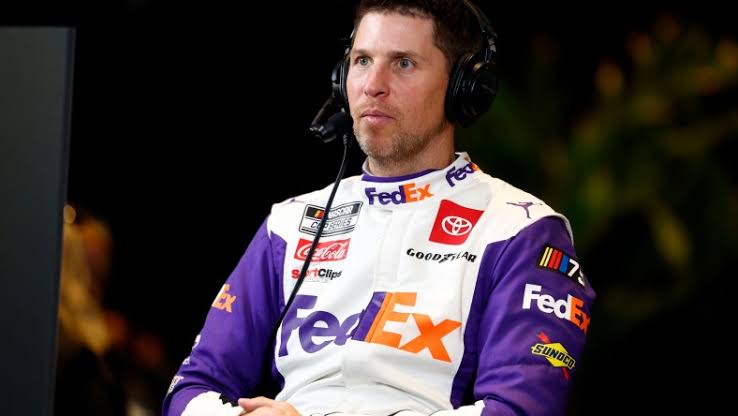Denny Hamlin recently shared his thoughts on the NASCAR playoff system, particularly in light of comments made by Chris Buescher after the race at Darlington. Buescher, who has had a strong season but failed to secure a playoff spot, expressed frustration with the system following Chase Briscoe’s victory at the Cook Out Southern 500. This win secured Briscoe’s place in the playoffs, marking the end of the regular season.
The NASCAR playoffs were first introduced in the 2004 season as a way to add excitement and intensity to the final races of the Cup Series. The initial format has undergone several changes since its inception. To qualify for the playoffs, drivers must either win a race during the regular season or earn enough points to rank in the top 16 overall standings. This system is designed to reward consistent performance as well as race victories, but it also presents challenges for drivers who rely heavily on points without securing a win.
The current playoff format allows for only a limited number of spots, which means that even drivers with strong seasons can be left out if they don’t win a race. This season, for example, only two drivers made the playoffs without having a victory. The rest of the playoff spots were filled by drivers who managed to win races during the regular season. This setup underscores the unpredictable nature of the playoffs, where a single race can significantly alter a driver’s fortunes.
Hamlin, a well-known driver with a net worth estimated at $65 million, discussed the playoff system on the Actions Detrimental podcast. His remarks came in response to Buescher’s critical comments. Buescher, who drives for RFK Racing, had a commendable season with 12 top-10 finishes and several near-wins. Despite his strong performances, he did not accumulate enough points to secure a playoff spot and did not win a race, leaving him outside the playoff bracket.
After finishing in sixth place at Darlington, Buescher expressed his disappointment with the playoff system. He remarked on the challenges of not making the playoffs despite outrunning many of the competitors who did. “Didn’t quite get it done again, now we’re on the outside looking in,” Buescher said. “Unfortunately, it’s just the system we’re all playing in. We had such a great year. We outran so many of these cars that are going to get to compete for a championship, but that’s the system. We didn’t work it right.” His comments reflect the frustration that can arise when a single race or a narrow point deficit prevents a driver from advancing, despite their overall strong performance throughout the season.
Hamlin’s response highlighted the inherent nature of the playoff system. He acknowledged Buescher’s frustration but pointed out that the system rewards both race wins and consistent performance over the season. “It just takes one race, no doubt about it,” Hamlin said. “You kind of heard comments from Buescher afterwards like, you know, ‘we beat these guys all year long, they beat us one race and now they’re in.’ I understand but it’s what we signed on for with this format many years ago.” Hamlin’s perspective emphasizes that while the system can be harsh, it is the agreed-upon format and has been a part of NASCAR for nearly two decades.
Chase Briscoe’s win at Darlington not only secured his playoff spot but also highlighted the high-stakes nature of NASCAR’s playoff system. Briscoe now finds himself close to the elimination line, alongside other drivers like Harrison Burton, Ty Gibbs, and Martin Truex Jr. The playoffs are known for their intense competition, and the drivers in the lower tiers of the playoff standings will need to perform exceptionally well to avoid elimination and advance further in the championship race.
In summary, the NASCAR playoff system is designed to create excitement by combining race wins with consistent performance, but it can also lead to frustration for drivers who excel throughout the season but fall short in crucial moments. As the playoffs progress, the competition will only intensify, with each race becoming a critical factor in determining who will advance and who will be eliminated.
$65M-worth Denny Hamlin uses Chris Buescher’s disappointment to highlight NASCAR format’s impact




